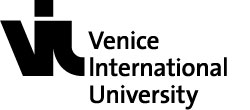F2005 Intercultural Communication
Professors
Schedule
Course description
Communication between cultures has always been an essential part of living in a global society, but the increased movement of people between regional and national boundaries has seen this gain even more relevance over the past several decades. Understanding how to communicate successfully across cultural differences has become a key area of research over the past half-century, and it has gained even greater attention in the last two decades with regards to how we deepen understanding of what cultural differences might be and how to deal with them. Two main areas that have emerged from this are crosscultural communication and intercultural communication. Cross-cultural communication has at its core the comparison between cultures. This can include the impact that culture can have on how people within that culture think, interact, and form their individual identities, and it is often seen as a prerequisite for understanding intercultural communication. Cross-cultural communication, then, tends to focus on individual cultures, looking at the unique features of each, and may to a certain degree be related to cultural competence, that is, the ability to function appropriately within a particular culture.
In contrast, intercultural communication is a relatively new area of research, and it focuses on the knowledge and skills that are required for people to be able to communicate with others from different cultures. While it assumes cultural competence to some extent, possessing intercultural communication competence means that people are able to deal with others from cultures that they might not be familiar with, not just those that they are. Thus, this course explores these two main areas—crosscultural communication and intercultural communication—in order to allow students to explore features of their own and others’ cultures that contribute to the formation of their identity and social perspectives, and to learn how to communicate comfortably with people from other cultures, regardless of how similar or different these cultures may appear to their own at face value. A third important part of this course is that it looks at the relationship between culture and language learning, as it would be assumed that most, if not all, of the students participating in the course would have some experience with language learning, and that understanding the relationship between language and culture can contribute to them using their language skills in a more suitable manner. This includes the concept of pragmatic competence, which refers to the use of appropriate language in particular situations, and students will explore their own linguistic and non-linguistic use in different languages where they can compare their views with other speakers and users of these languages. The classes will consist of indepth discussion and exchanging of ideas with regards to the similarities and differences between the languages and cultures of the participants, and it is expected to lead to a broader understanding of how to achieve more appropriate communication with those from different cultural backgrounds.
Learning outcomes of the course
The primary purpose of this course is for students to understand the complexities of culture and its impact on communication. This includes gaining an understanding of cross-cultural issues, intercultural issues, and also the implications of culture for learning foreign languages. Students will be able to reflect on their own varied experiences regarding culture to help broaden understanding among class members.
Teaching and evaluation methods
The course will consist of short lectures which include ongoing discussions on the topics covered each week. Grades will be assigned for active participation in-class discussion (30%), completion of weekly online forums based on the readings and lectures (30%), and a final written assignment (40%).
Bibliography
Gudykunst,W. B. (Ed.). (2003). Cross-cultural and intercultural communication. London: SAGE Publications Ltd.
Jackson, J. (Ed.). (2014). The Routledge handbook of language and intercultural communication. Abingdon: Routledge.
McConachy, T. (2018). Developing intercultural perspectives on language use: Exploring pragmatics and culture in foreign language learning. Bristol: Multilingual Matters.




















